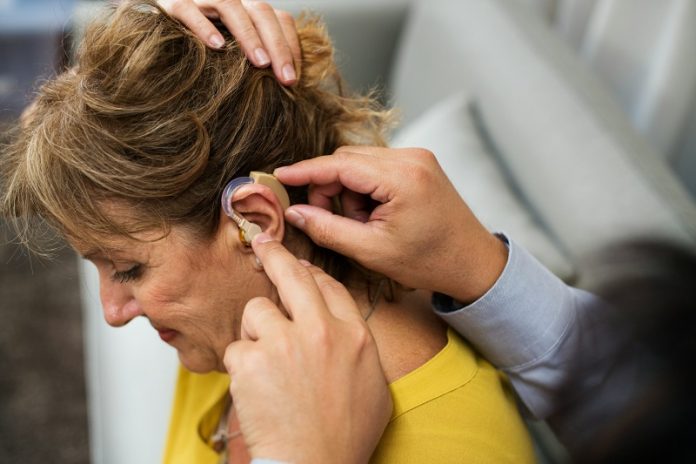
Hearing loss can make daily life more difficult—leading to problems like social isolation, trouble communicating, and feeling less alert.
Over time, it may also increase the risk of memory problems and cognitive decline.
A new study from the University of Geneva (UNIGE) has found that the combination of hearing loss and feelings of loneliness can speed up memory loss in older adults.
The research, published in Communications Psychology, looked at data from 33,000 older adults across Europe. The scientists found that hearing problems had the biggest impact on memory decline in people who felt lonely—even if they weren’t socially isolated.
According to the World Health Organization, over 2.5 billion people could experience hearing loss by 2050. Among people aged 60 and older, more than 1 in 4 have a disabling level of hearing loss. This can lead to a 2–3 times higher risk of developing memory problems and dementia.
The UNIGE team looked at whether hearing loss combined with loneliness made memory decline worse. This is a new approach that hasn’t been studied much before.
They used information from the SHARE project, a large European study on aging that started in 2002. It includes surveys from people aged 50 and older across 12 countries, including Switzerland.
Researchers identified three types of participants:
1. People who were socially isolated and felt lonely.
2. People who were not socially isolated but still felt lonely.
3. People who were socially isolated but didn’t feel lonely.
They found that the worst memory decline happened in people who were not isolated socially but still felt lonely—and who also had hearing loss. In other words, people who had friends or family around them, but still felt emotionally alone, were most affected when they also had hearing problems.
This “explosive mix” of loneliness and hearing loss could cause faster memory loss. But the good news is that something as simple as using hearing aids could help. For people who already have a social network, improving their hearing may help them feel more connected and protect their memory as they age.
“This shows how important it is to look at both hearing and emotional well-being when caring for older adults,” said Charikleia Lampraki, the lead author. “If we can remove hearing barriers, we may help people feel more involved in social life and protect their brain health.”
If you care about Alzheimer’s disease, please read studies about These places in U.S. have the most cases of Alzheimer’s disease and findings of Scientists confirm the link between COVID-19 and Alzheimer’s disease.
For more about Alzheimer’s disease, please read studies about New Alzheimer’s treatment: anti-inflammatory drug may prevent memory loss and findings of The diabetes drug surprise: a possible shield against Alzheimer’s?
The study is published in Communications Psychology.
Copyright © 2025 Knowridge Science Report. All rights reserved.



